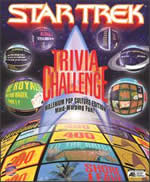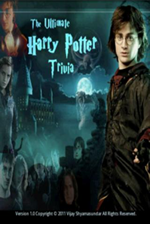The trivia (singular trivium, adjective trivial) are the three lower Artes Liberales, i.e. grammar, rhetoric and logic. These were the topics of a basic classical education. That might surprise you as, during the 20th Century, it was ironically appropriated to mean something very different - unimportant (often 'geeky') knowledge.
Since the 1960s, the trivia genre has widened to include knowledge that is nice to have but not essential, specifically detailed knowledge on topics of popular culture. The expression has also come to suggest information of the kind useful almost exclusively for answering quiz questions, culminating in the very popular Trivial Pursuit in 1982.
|
 |
The advent of computerised versions of board games such as Trivial pursuit led to a plethora of computer games - the added advantage of being able to include video and sound clips made these games very popular. TV series, books, films etc all led to multiple quiz games based on the trivia associated with the subject chosen.
Online there are hundreds of 'free quizzes' designed to test (and improve... but sometimes 'warp') your knowledge of your favourite subject matter. You can also play them via your phone. The trivia quiz is only as good as the person writing it - take care - those written by people not associated with the production company of the original series or film can be misleading, wrong or even offensive.

|
 |

